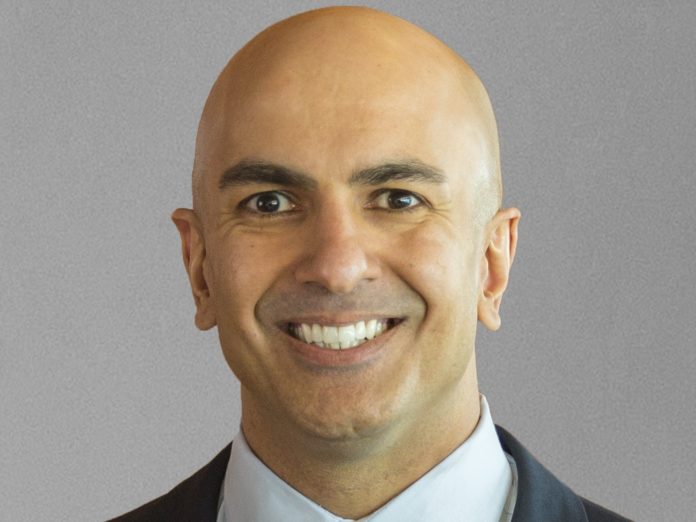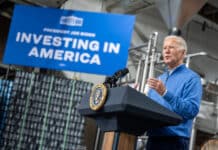The president of the Minneapolis Federal Reserve said that a “really hard” six-week lockdown may be the best path towards economic recovery.
Neel Kashkari, CEO and president of the Minneapolis Federal Reserve Bank, discussed the steps the U.S. should take to regrow the economy in a Sunday interview on “Face the Nation.”
Kashkari said that business closures and the spread of the COVID-19 virus could be prevented by the government “clamping back down.”
“I mean, if we were to lock down really hard, I know I hate to even suggest it. People will be frustrated by it. But if we were to lock down hard for a month or six weeks, we could get the case count down so that our testing and our contact tracing was actually enough to control it the way that it’s happening in the Northeast right now,” said Kashkari.
“Now, if we don’t do that and we just have this raging virus spreading throughout the country with flare ups and local lockdowns for the next year or two, which is entirely possible, we’re going to see many, many more business bankruptcies, small businesses, big businesses, and that’s going to take a lot of time to recover from to rebuild those businesses and then to bring workers back in and re-engage them in the workforce. That’s going to be a much slower recovery for all of us,” Kashkari argued.
He called on Congress to “use this opportunity to support the American people and the American economy,” either through more CARES Act funding or a new bill. He cited current and projected inflation rates as reasons why Congress could pass another relief package without collecting too much debt.
“There’s one bright spot that I saw, though. The U.S. personal savings rate has taken off. Before the crisis, it was around 8%. Now it’s around 20%,” Kashkari noted, saying the U.S. will be able to pay off the debt from emergency benefits once the economy is growing again.
People receiving more money for not working should not be a current concern, according to Kashkari.
“At some point it’ll be an issue. When we get the unemployment rate eventually back down to 5% and we want to get it back down to 4% or 3.5% where it was before, yes, that disincentive to work becomes material,” he said. “But right now it’s simply not a factor in the macro economy that we have in the U.S. because we have so many millions of Americans out of work.”
















